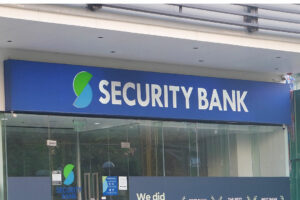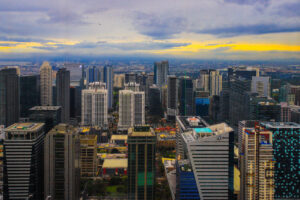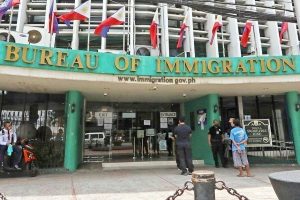Moody’s affirms Security Bank’s ratings, revises outlook to negative

MOODY’S RATINGS has affirmed Security Bank Corp.’s ratings but revised the outlook to “negative” from “stable” as it expects its capital position and asset quality to face pressures amid strong long growth.
Moody’s affirmed the listed bank’s Baa2/P-2 long-term (LT) and short-term (ST) local-currency (LC) and foreign-currency (FC) deposit ratings, Baa2 FC senior unsecured rating, Baa2/P-2 LT and ST LC and FC issuer ratings, Baa2/P-2 LT and ST LC and FC counterparty risk ratings, and Baa2(cr)/P-2(cr) LT and ST counterparty risk assessments, it said in a statement on Tuesday.
It also affirmed the baa3 baseline credit assessment (BCA) and adjusted BCA of the bank, as well as the (P)Baa2 FC rating on the lender’s senior unsecured medium-term note (MTN) program and its (P)P-2 FC other ST rating.
“We revised the outlook on Security Bank’s deposit, issuer and senior unsecured ratings to negative from stable mainly because of negative pressure on the bank’s capital buffer,” Moody’s said. “The rating action also considers the potentially negative impact of the bank’s strong loan growth and weakened ability to absorb future losses, under our environmental, social and governance framework, because it reflects Security Bank’s relatively aggressive financial strategy and risk management, which could negatively impact the bank’s credit profile.”
“At the same time, errors in 2023 and 2024 annual audited financial statements, though corrected subsequently, highlighted weaknesses in the bank’s internal controls relative to peers, potentially raising operational risk. These challenges are reflected in a moderate governance issuer profile score of G-3,” it added.
The credit rater said it affirmed Security Bank’s deposit ratings and BCA to reflect its “average” solvency and liquidity metrics and its “weaker-than-peers funding structure.”
Meanwhile, it downgraded its outlook on the ratings to negative as it expects its capitalization, as measured by tangible common equity as a percentage of risk weighted assets (TCE/RWA), to remain under negative pressure.
“The bank’s TCE/RWA declined to 13.7% as of December 2024 from 17.0% a year earlier, as loan growth accelerated to 25% in 2024 from 7% in 2023. Including the upcoming acquisition of a minority stake in Home Credit Philippines, a consumer finance company, we expect TCE/RWA to decline below 13%,” Moody’s said.
In December, Security Bank announced that it will acquire MUFG Bank Ltd.’s 25% stake in HC Consumer Finance Philippines, Inc. (HCPH) or Home Credit Philippines for P11 billion. It targets to complete the transaction this year.
Moody’s expects Security Bank to post a loan growth of about 10% this year, adding that the lender’s capital ratios would continue to decrease if rapid credit expansion continues over the next year. This, after loan growth outpaced return on equity (RoE) in 2024, it noted.
Rapid loan growth has affected the bank’s asset quality, the credit rater said, with its loan loss reserves also lower than the industry average.
The robust expansion of its retail lending business also poses unseasoned loan risks, it added, with higher credit costs outweighing the earnings boost provided by the sector.
“In 2024, loan loss provisions as a percentage of gross loans increased to 0.94% from 0.79% the year before. We expect credit costs to stay elevated and profitability to remain broadly stable at current levels over the next 12 to 18 months,” Moody’s added.
It also noted that Security Bank’s funding structure deteriorated “modestly” last year with the share of low-cost current and savings account deposits to the total also declining, “reflecting an increase in reliance on market funds to support loan growth and protect margins.”
Still, the bank’s liquidity position remained sufficient for its short-term funding needs, the debt watcher added.
Moody’s said it is unlikely to upgrade Security Bank’s ratings in the near term as they are already at the same level as the Philippines’ sovereign credit rating.
“We could downgrade the bank’s deposit ratings and BCA if the bank’s TCE/TWA falls below 12% due to the loan growth surpassing RoE or if asset quality deteriorates, leading to an increase in credit costs and consequently lower profitability. A significant weakening in Security Bank’s funding and liquidity would also be negative for the BCA and ratings,” it said.
“We could revise Security Bank’s outlook to stable if the bank’s TCE/RWA remains above 12% and if net income/tangible assets stays above 1% on a sustained basis,” Moody’s added. — BVR




